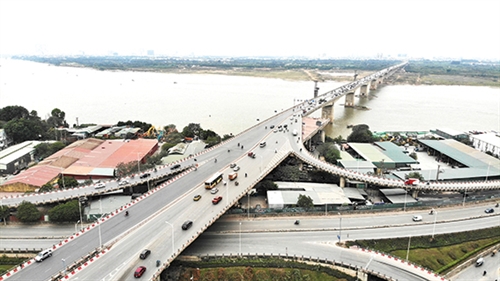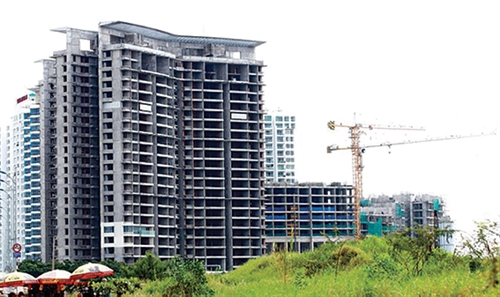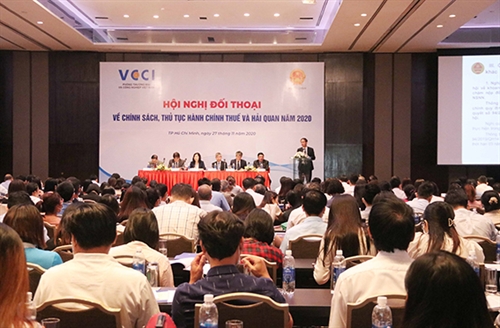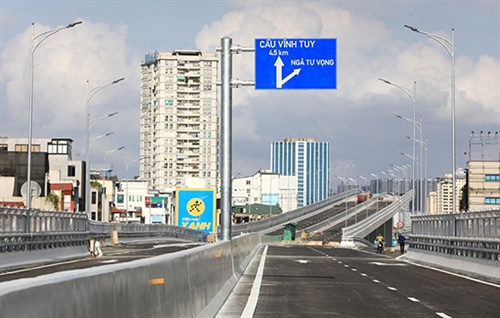Leasing out a charged asset is common practice for the chargor to exploit the value of such asset. New rules on secured lending have tried to complete the applicable regime. However, those rules still leave something to be desired. This article examines those rules as well as their drawbacks with a practical viewpoint and application.
Bui Duc Giang
Attorney at law and Ph.D in law, Visiting Lecturer at Hanoi Law University[1]
KEY POINTS
- Whether the charge agreement is entered into before or after the lease agreement, the lessee will be entitled to remain on lease on enforcement of the charge;
- The law remains unclear on the time of giving notice of the lease to the chargee;
- The secured creditor may face procedural difficulties when realizing a commercial building.
Civil Code 91/2015/QH13 dated November 24, 2014 (the Civil Code) contains no provisions on charges over leased property.
Article 34.1 of Decree 21/2021/ND-CP dated March 19, 2021 (effective on May 15, 2021) (Decree 21), providing guidelines for the implementation of the Civil Code’s provisions relating to security interests, states that in case an asset which is being leased constitutes the object of a charge, the chargor shall give notice to the chargee. Article 34.2 of this Decree further stipulates that realization of the asset in this case will not terminate the lease agreement and the lessee will be entitled to remain on lease until the end of the lease agreement. Those new rules of Decree 21 now become the general law governing this circumstance.
The fate of the charge agreement may also be dealt with by specialized laws. For instance, if a secured asset is a house, Article 146.1 of Law on Housing 65/2014/QH13 dated November 25, 2014 (the Law on Housing) provides that “the homeowner is entitled to charge his house currently on lease provided that he gives prior notice to the tenant of the charge in writing. The tenant will be entitled to remain on lease until the expiry of the lease term”. Therefore, a landlord can charge his house which is being leased out provided that he notifies the tenant of the charge in writing. It appears that the Law on Housing is clearer on the time of giving notice (i.e., prior to the formation of the charge agreement) than Decree 21 which, as mentioned above, only states that the chargor shall notify the lessee, without specifying when the notice must be given.
Article 146.2 of the Law on Housing provides that “in case the house on lease is realized to fulfill obligations of the chargor, the tenant will be entitled to remain on lease until the expiry of the lease term, unless the tenant breaches the provisions of Article 131.2 of this Law or otherwise agreed by the parties”. Article 132.2 of the Law on Housing states that the landlord may early terminate the lease agreement in the case of occurrence of certain breaches by the tenant, such as failure to pay rentals agreed by the parties, use of the house for improper purposes, demolition, expansion or renovation of the house without the landlord’s consent, etc.
As such, if there is a ground for enforcing the charge[2], the chargee will be entitled to realize the secured asset. Consequently, the chargee or the purchaser of the asset will become the new lessor (and new owner) (in case the bank realizes the charged asset either by appropriating such asset in lieu of repayment of the loan or by selling the asset to a third party) and the lessee will have the right to remain on lease until the lease agreement expires.
Banks should take account of this scenario when drafting charge agreements since the obligation to maintain the lease on enforcement will significantly lower the liquidity of the secured asset. For the same reason, when valuing secured assets on lease, the bank may consider deducting the rental amount paid in advance by the lessee to the chargor from the date of entering into the charge agreement until the end of the lease term to better reflect their actual value. Furthermore, the bank also needs to get the chargor and the lessee to contractually agree not to vary the lease agreement in an unfavorable way to the bank (by ways of examples by extending the lease term or by adding obligations on the landlord).
Before entering into the charge agreement, the bank also needs to verify whether the lease agreement contains a clause forbidding or restricting creation of charges of the house on lease. If such clause exists, the bank will need to negotiate a revision with the parties to the lease in order to enable the creation of the charge.
 |
| “For rent” signboards start to appear in Hang Ngang street, one of the busiest business locations in Hanoi, amidst the COVID-19 pandemic__Photo: Ngoc Ha/VNA |
The charge agreement is entered into before the lease agreement
Article 321.6 of the Civil Code allows the chargor to “lease out […] the charged property, provided that the chargor notifies the lessee […] that the property subject to the lease […] is being charged and that the chargor gives notice to the chargee [of the lease]”. This case happens for instance where an asset (i.e., a building) is charged to the bank and then the chargor (who is the owner of such asset) leases it out to a third party.
As per the above provision, the charged property may be leased out but the chargor must give notice to both the lessee and the chargee. This notice is necessary, for the lessee needs to be informed that the chargee has acquired some rights over the leased property as the secured creditor and the chargee also need to be aware that the chargor is currently exploiting the property by leasing it out in order for the chargee to be able to properly manage the legal condition of the secured asset. From the chargee’s point of view, this notice requirement stems from Article 320.5 of the Civil Code under which the chargor is under an obligation to “provide information concerning the actual condition of the charged asset to the chargee”.
In other words, the purpose of the notice is to inform the lessee and the chargee of the actual legal state of the asset.
As the Civil Code does not clearly state at what point of time this notice must be given, it can be inferred that such notice can be given before or after the lease agreement is entered into. However, the lawmakers should have introduced the obligation on the chargor to give notice prior to the formation of the lease as such approach appears to be fairer to the lessee.
Furthermore, the Civil Code does not expressly provide whether the lease is legally binding in case the bank (i.e., the chargee) has not been notified thereof. In accordance with Article 119.2 of the Civil Code[3], it is clear that the notice is not a formal requirement for the lease to be enforceable against the parties to the lease.
In this respect, one question arises: if a charged asset is subsequently leased out and then the bank realizes the charged asset, does the lessee have the right to remain on lease as agreed with the chargor in the lease agreement? The Civil Code is silent on this point.
Article 34.3 of Decree 21 states that “in case the charge has become enforceable against third parties but the chargor […] leases out the charged asset and fails to give notice to the chargee, then […] the lease agreement shall terminate at the time of realization of the charged property. The rights and obligations of the chargor and the lessee […] shall be dealt with in accordance with the lease agreement […], the provisions of the Civil Code and other applicable laws”.
As such, if the charge agreement is entered into and registered[4] before the establishment of the lease agreement but the chargor fails to give notice of the lease to the chargee, then the lessee will not be entitled to remain on lease on enforcement of the charge. This provision may be read a contrario as meaning that in the presence of such notice, the lease agreement will not terminate at the time of enforcement. A cautious lessee should therefore make sure that a notice has been duly given to the chargee.
In this regard, it is noteworthy that Decree 21 is unclear on the time of giving notice. It is a pity as this could be a source of conflicts.
The problem arising from the a contrario reading of Article 34.3 of Decree 21 is that this text may be questionable. Indeed, Article 422.7 of the Civil Code provides that a contract may terminate inter alia in “circumstances provided by a law”. As such, a decree like Decree 21 may not provide for circumstances in which an agreement like a lease agreement may terminate.
In sum, even if the charge agreement is entered into before the lease agreement, on enforcement, the bank will be under an obligation to maintain the initial lease relationship between the chargor and the lessee unless otherwise agreed by the lessee. This is not what the bank would actually expect and will certainly impact the process of realization of the charged property.
When the property is owned by a real estate developer
It is common practice to charge a commercial building developed by a real estate enterprise since real estate development funding comes mostly from banks.
Article 28.5 of Law 66/2014/QH13 on Real Estate Business dated November 25, 2014, as revised in 2020 (the Law on Real Estate Business) provides that the lessee of a commercial house or another construction work (e.g., a commercial building) developed by a real estate developer will be entitled to “remain on lease under the terms and conditions agreed with the lessee in case of change of owners”. As mentioned earlier, realization of a charge over an asset will in principle entail a change of owners of such asset. Therefore, the lessee will have the right to lease the property for the remainder of the lease agreement’s term in accordance with the terms and conditions agreed initially with the chargor.
Furthermore, it appears that this text is supposed to apply regardless of the time of entering into the lease agreement (before or after the formation of the charge agreement).
It should be emphasized that, in practice, disputes between banks and chargors may be delayed or even reach an impasse when there are the lessees acting as parties with related rights and obligations in legal proceedings. Indeed, in application of Article 68.4 of Civil Procedure Code 92/2015/QH13 dated November 25, 2015, the court must send summons to all individuals and households living in the building, as well as companies renting business premises located in such building, to participate in proceedings as persons with related rights and obligations. However, in many circumstances, because the number of those persons is large and subject to change, the court cannot summon all of them, making the cases almost impossible to be heard.
In reality, when drafting charge agreements, banks often request lessees to make certain undertakings, notably to waive the above-mentioned right to remain on lease on enforcement. Such agreements are perfectly enforceable under the current regulations (i.e., Article 3.2 of the Civil Code and Article 11 of Commercial Law 36/2005/QH11 dated June 14, 2005, as revised in 2017 and 2019), although obtaining the lessees’ consent is not always easy as such waiver would directly affect the lessees’ rights.
The main aim of secured transaction law reform is to help increase access to credit. The above analysis shows that the new legal framework governing the relationship between lessees of property (especially real property) and banks (as chargees of such property) is very protective of the former. Additionally, in practice, charge agreements can hardly prohibit the chargor from leasing out the secured property since the exploitation of the secured property by means of a lease may constitute the main source of income (cash flows) which will be then used to repay the loan. This is why banks need to be extremely careful, especially when drafting charge agreements, in order to find a balance between the chargors’ right to lease out secured assets and the banks’ right to (effectively) realize the secured assets. This is a long and winding road.-









